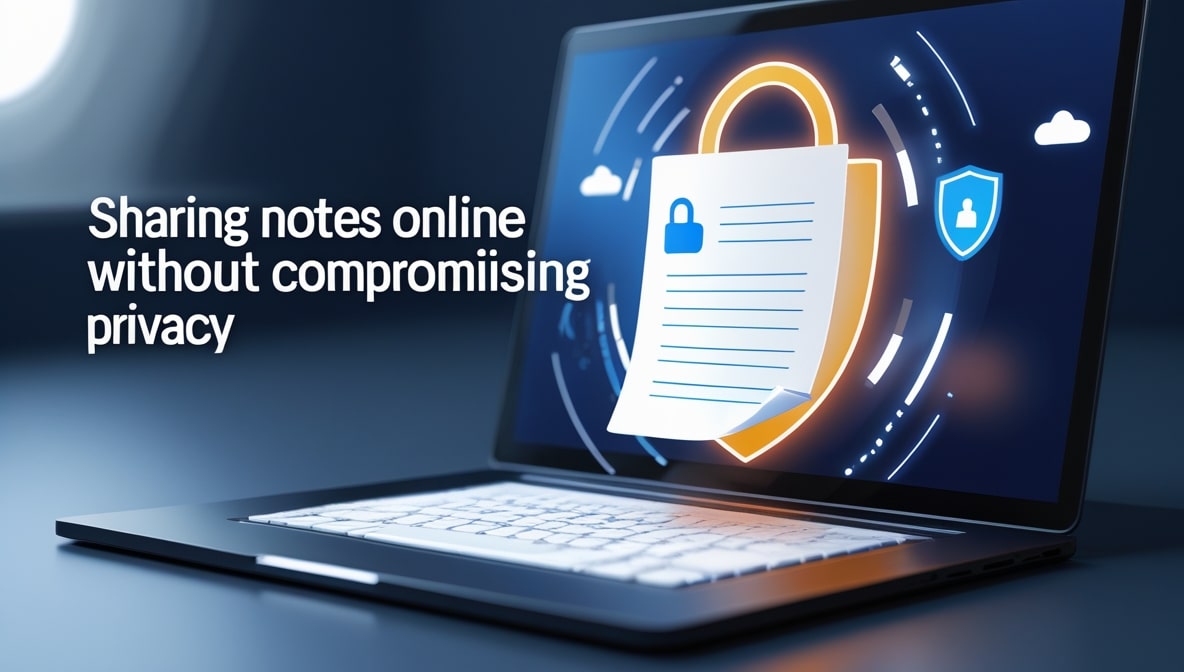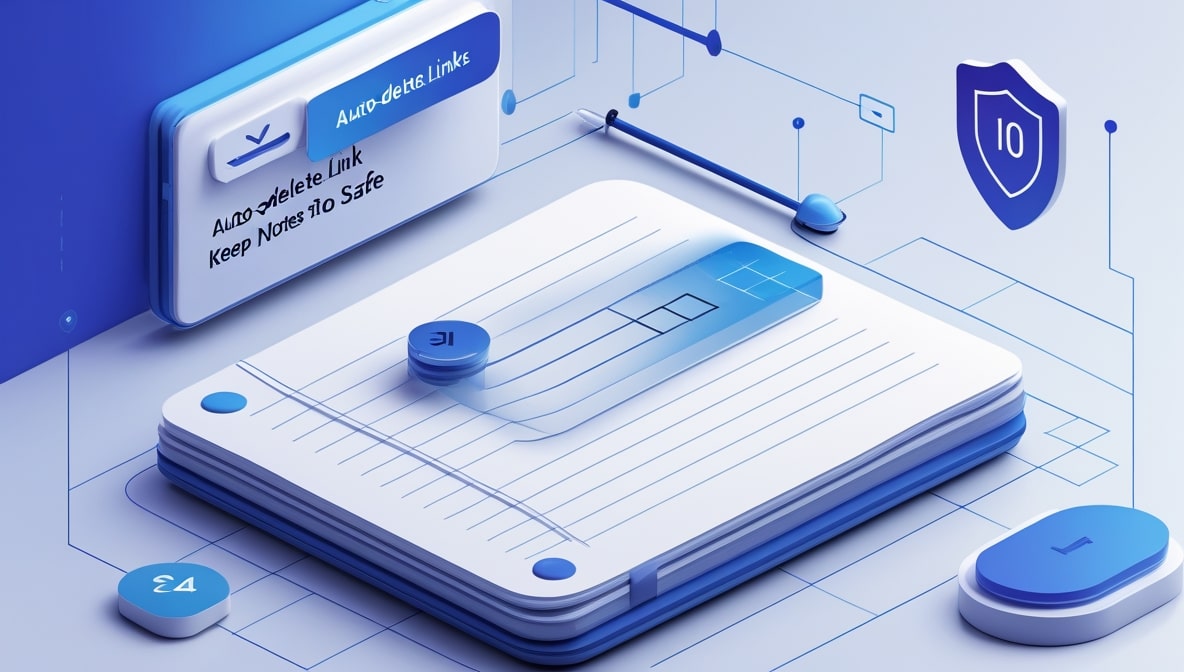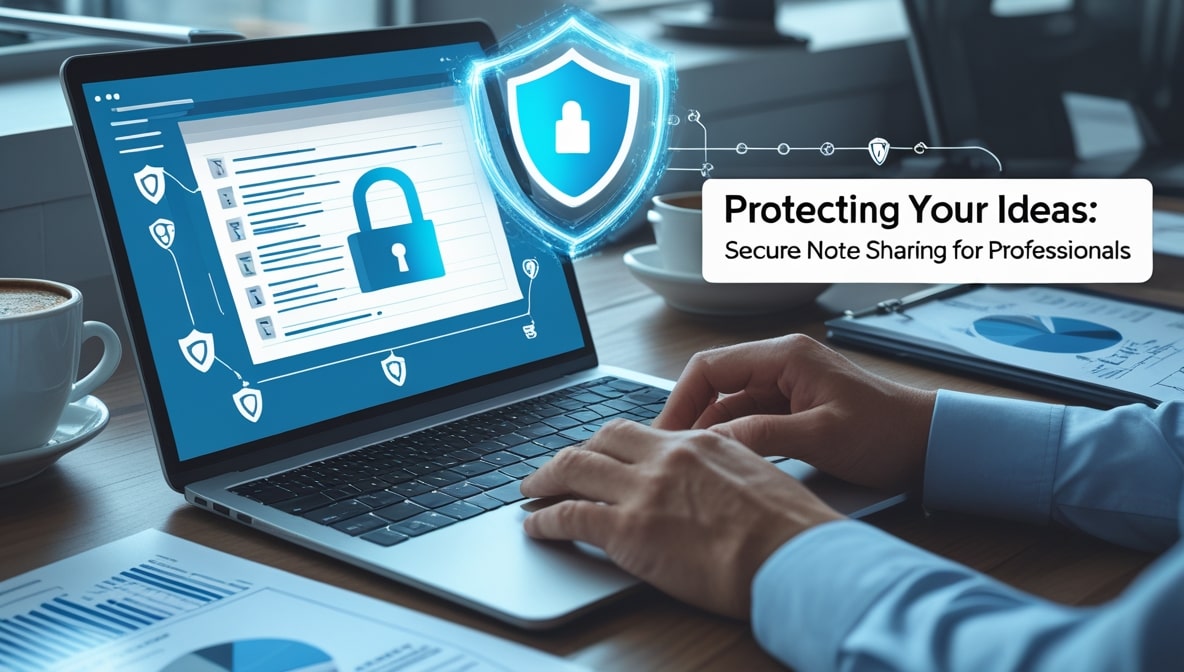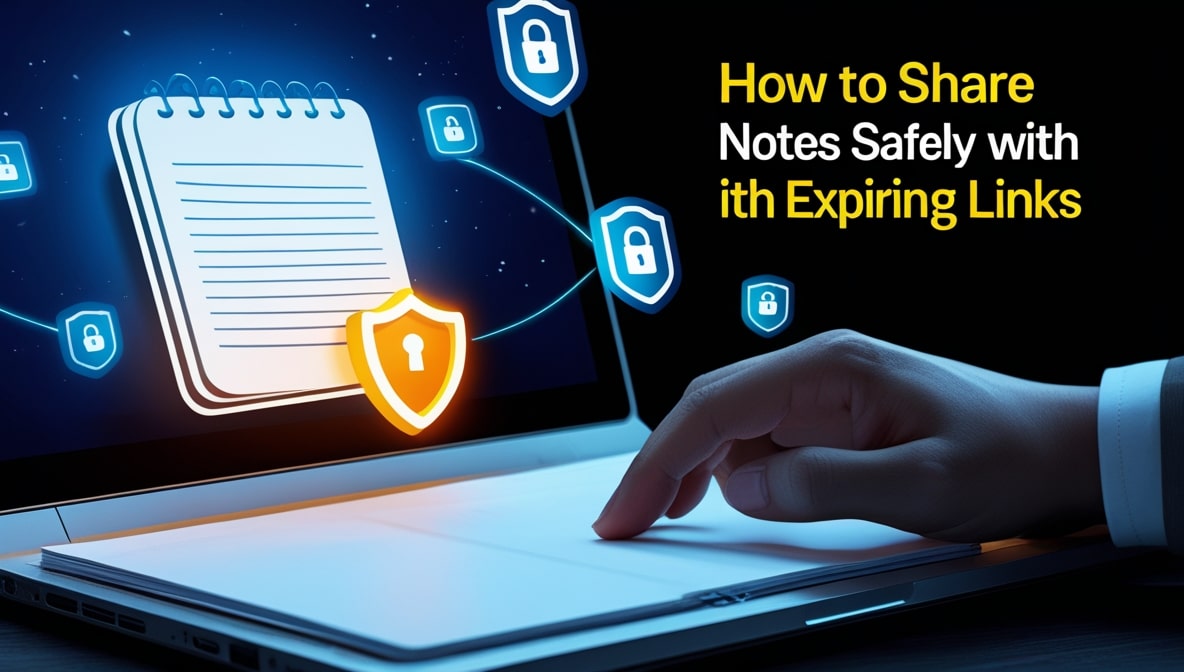Why Password-Protected Notes Are Essential in 2025
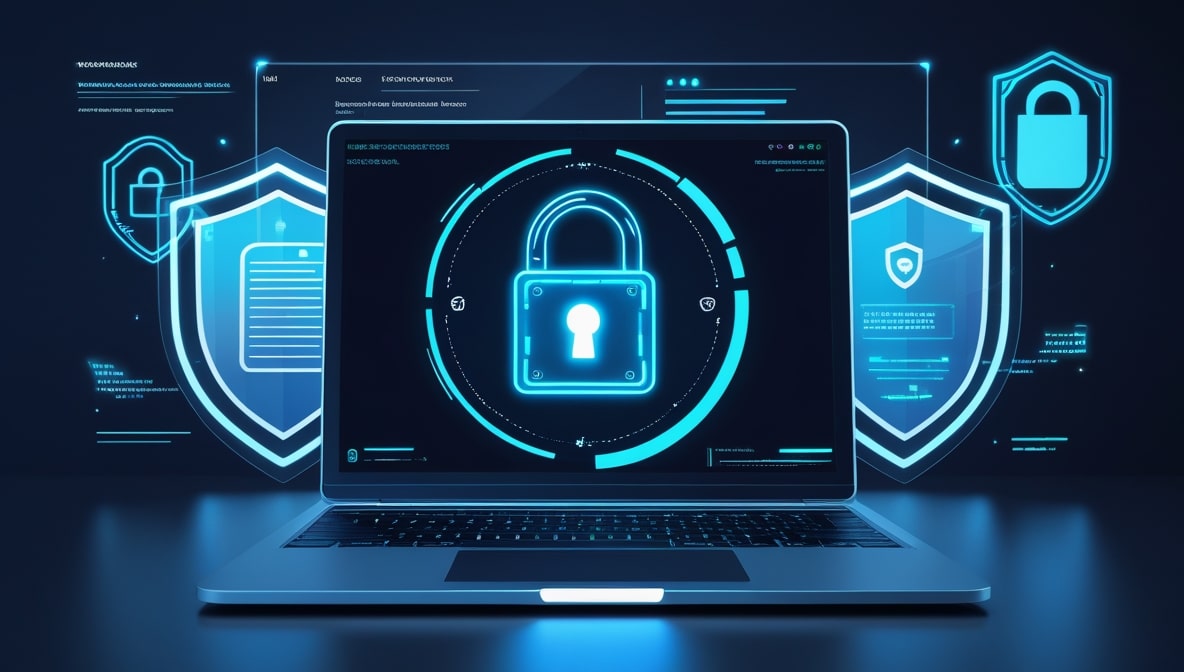
Think about the last thing you jotted down in a hurry. Was it a phone number? A grocery list? Maybe it was a sudden, brilliant idea for a new business, a snippet of a private conversation you needed to remember, or even a password you were about to change. We use digital notepads for everything these days. They’ve become the go-to repository for our brains' overflow, a convenient little space to park thoughts we can't afford to forget. It's second nature.
We open a tab, type it out, and trust it’s safe. But as we cruise through 2025, we have to ask ourselves a pretty serious question: how safe is it, really? In a world where our digital and real lives are more intertwined than ever, leaving these fragments of our life unprotected is like leaving your diary open on a park bench. It's time we talk about why adding a simple lock a password to your notes is no longer a feature for the paranoid, but an absolute necessity for everyone.
Your Life's Digital Junk Drawer
Take a moment and honestly consider what’s in your primary note-taking app. It’s probably a bit like that one drawer in your kitchen, isn't it? The one with the spare batteries, the random keys, a few old receipts, and that one mysterious cable you're afraid to throw away. Our digital notes are the same. In one file, you might have the meeting notes from last week's sensitive client call. Right below it, a draft of a difficult email to a family member. Then there’s the list of potential passwords, the confirmation number for your upcoming vacation, and maybe even a few lines of a poem or journal entry that feel deeply personal.
We dump everything into our digital notepads because they are convenient. This convenience, however, creates a single, concentrated point of failure. If someone gets access to that one unprotected space, they don't just get one piece of information; they get a chaotic, sprawling, and incredibly revealing map of your life.
The Threat Isn't Always a Faceless Hacker
When we think about cybersecurity, our minds often jump to an image of a hacker in a dark room, furiously typing code to break through complex firewalls. And while that's a real threat, it’s not the most common one for the average person. The more likely risk is far more mundane. It’s your coworker who borrows your laptop for a minute to look something up and stumbles upon your notes. It’s a friend using your tablet who accidentally sees your financial plans.
What if your phone gets lost or stolen? That thief doesn't need to be a coding genius to open your notes app and find a treasure trove of personal data. These everyday situations are where the lack of a simple password can turn a minor inconvenience into a major personal crisis. Protecting your notes isn’t just about stopping international cybercriminals; it's about maintaining your privacy in your own daily life.
Navigating the Blurred Lines of Work and Life
The world has changed. For many of us, the concept of a dedicated "work computer" and a "personal computer" has completely dissolved. We answer work emails on our personal phones, and we chat with friends on our work laptops. This blending of worlds means that sensitive corporate data is now living on the same device as our most intimate personal thoughts. Imagine your notes containing confidential project details, client feedback, and strategic plans for your company. Now, imagine those notes are sitting in the same unprotected list as your personal budget, your private journal, and your medical information.
A simple password on your Online Notepad creates a crucial digital partition. It’s a boundary that helps you keep your professional life secure and your personal life private, even when they’re forced to share the same screen. It’s a small step that respects both your employer’s need for security and your own need for privacy.
Your Personal Data is the New Gold
We hear the phrase "data is the new oil" all the time, but what does it actually mean for you and your simple notes? It means that seemingly random bits of information about you, when collected together, become incredibly valuable. A note with your mother's maiden name and your first pet's name could be the key to your security questions. A note about your upcoming vacation tells a potential thief when your house will be empty.
Even your random thoughts and musings can be used to build a psychological profile for highly targeted phishing scams. Malicious actors are experts at connecting these dots. The password you put on your notes isn't just protecting individual pieces of text; it's protecting the raw materials that could be used to compromise your identity, your finances, and your personal safety. It's about breaking the chain of data collection at its source.
The Freedom of a Truly Private Space
Beyond all the scary "what if" scenarios, there’s a much more positive and immediate benefit to password-protecting your notes: peace of mind. When you know your digital notebook is locked and for your eyes only, it changes how you use it. You can be more honest, more vulnerable, and more creative. It becomes a true safe space to explore ideas without self-censorship. You can draft that brutally honest email, map out that wild, ambitious life plan, or journal your deepest anxieties without a nagging fear in the back of your mind about who might see it.
An Online Notepad with strong password protection fosters a better creative and emotional process. It’s the digital equivalent of a locked diary, giving you the confidence and security to think freely, which is a priceless commodity in our hyper-connected world of 2025.
What Does "Secure" Really Mean, Anyway?
So, you’re convinced. You need a password. But not all password protection is created equal. Simply putting a login screen on a website isn't enough. The gold standard to look for is end-to-end encryption. Now, that sounds super technical, but the concept is actually quite simple. Imagine writing your note, and before it even leaves your computer, you lock it in a special box that only your personal key (your password) can open.
That box travels across the internet and is stored on a server. Even the company that owns the server can't open the box. They can see the box is there, but they have no idea what's inside. Only when you come back and use your key can the box be opened and the note be read. This is what true end-to-end encryption does, ensuring that you, and only you, have access to your private information.
Moving Beyond "Password123"
The strongest lock in the world is useless if the key is just lying under the doormat. The same goes for your password. Using a weak, easily guessable password is like locking your diary with a piece of tape. In 2025, we have to be smarter. The best practice is to use a passphrase instead of a single word. Don't just think of a word; think of a short, memorable, and weird sentence. Something like ThreeBunniesAteMyBlueCarpet! is infinitely stronger than something like Jordan2025.
It's longer, has a mix of character types, and is easy for you to remember but nearly impossible for a computer to guess. Your password is your first and most important line of defense. Take a few extra seconds to create a strong one; it’s one of the simplest and most effective security measures you can possibly take to protect your digital life.
"But I Have Nothing to Hide!"
This is perhaps the most common argument against taking privacy measures, and it’s based on a fundamental misunderstanding of what privacy is. Privacy isn't about hiding illegal or immoral activities. Privacy is about control. You have curtains on the windows of your home, right? It’s not because you’re doing something wrong inside; it’s because you want to control who gets to see your personal space and when. Your personal notes are the digital equivalent of your living room. They contain your private conversations, your personal thoughts, and your mundane plans.
Protecting them with a password isn't an admission of secrecy; it's a declaration of your right to control your own information. It's about choosing what parts of your life you want to share and what parts you want to keep just for yourself, and that’s a right everyone deserves.
Your Simple First Step to a Safer Digital Life
The world is only going to get more complex, and the data we generate will only become more valuable. We can’t unplug from the system, but we can take smart, simple steps to protect ourselves within it. Locking your notes is no longer an optional extra; it's a fundamental part of good digital hygiene, just like having a screen lock on your phone. It protects you from everyday accidents, from malicious threats, and gives you the mental freedom to express yourself fully.
As you navigate the rest of 2025, take a look at the tools you use every day. If your digital notebook doesn't offer the ability to lock your thoughts behind a strong password and end-to-end encryption, it's time to find one that does. It's a small change that makes a world of difference.
